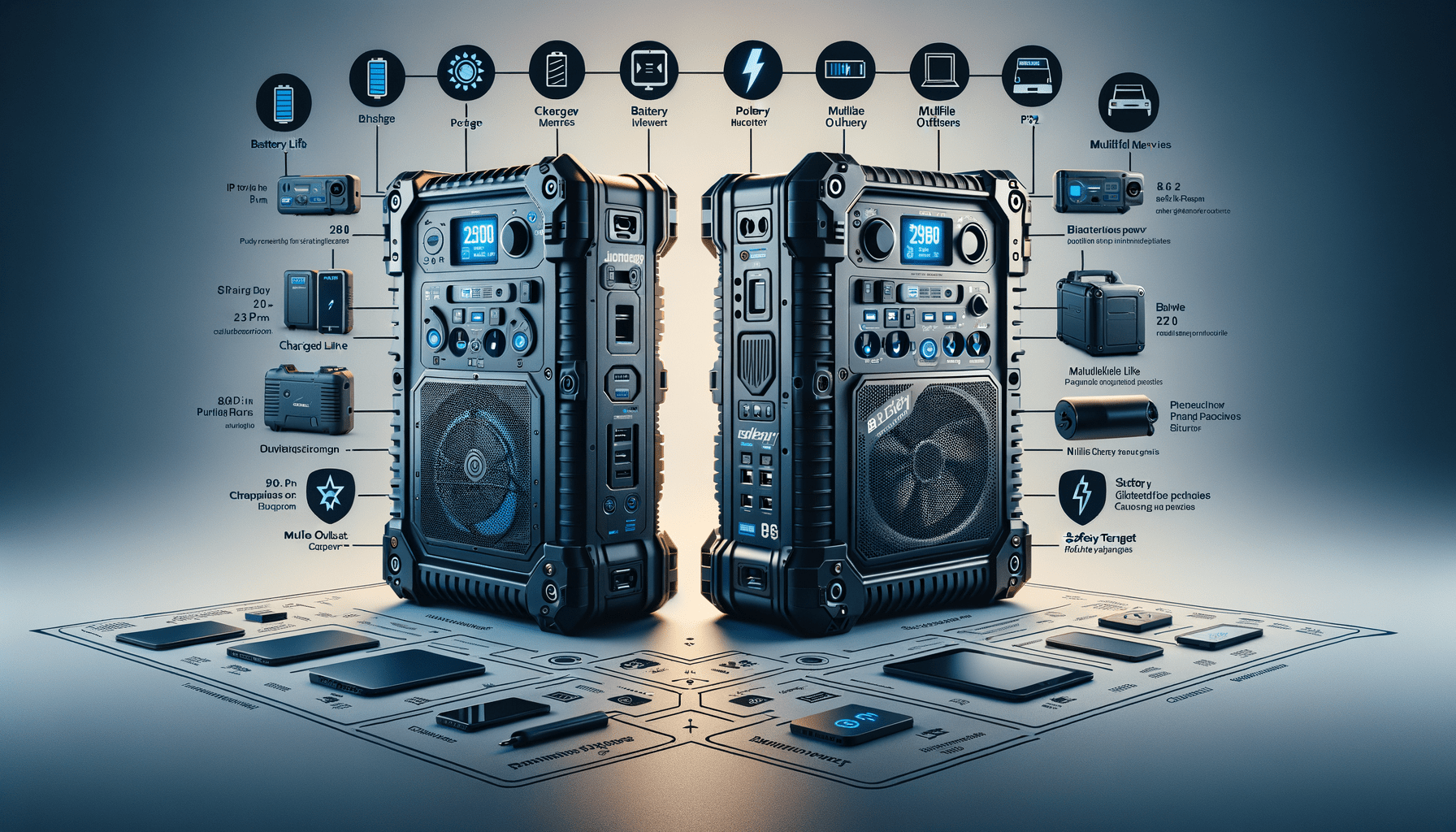Whether you’re a seasoned camper, an eco-conscious traveler, or simply looking to ensure you have power during unexpected outages, portable power stations have become invaluable. In this head-to-head comparison, we dive into the nuts and bolts of the EcoFlow River 2 and the Renogy 1000, two prominent power stations in the industry, to help you decide which is the best fit for your needs.
Design and Portability
Beginning with design and portability, the EcoFlow River 2 boasts a compact and lightweight form at just 7.7 lbs, which makes it a piece of cake to carry on camping trips or when you’re on the move. Meanwhile, the Renogy 1000 is heftier at 41 lbs but offers a rugged steel construction that promises durability.
Charging and Battery Capacity
When it comes to juicing up your devices, the speed of charging can be critical. EcoFlow River 2 excels with a rapid full charge in just 1 hour, perfect for those with minimal time on their hands. On the other side, Renogy 1000 features iTurbo recharge technology, capable of reaching 80% charge in about an hour as well.
Battery capacity is a deal-breaker for many, and here the Renogy 1000 shines with an impressive 998Wh capacity, while the River 2’s capacity is to be confirmed by the manufacturer. Both harness Lithium-ion technology, with Renogy leveraging a LiFePO4 battery recognized for longevity – a critical feature for frequent users.
Output Options
Both stations offer an array of outputs to power devices. EcoFlow River 2 has USB-C, USB-A, DC, and AC outlets with pure sine wave output, ensuring that sensitive electronics are catered for. The Renogy 1000 steps it up a notch, boasting 6 AC outlets and a total of 12 ports, perfect for those with multiple power needs.
Solar Charging Capabilities
Eco-conscious folks will appreciate the solar charging capabilities of both stations. The River 2 pairs nicely with EcoFlow solar panels, and Renogy’s 1000 works with their E.FLEX 220W portable panels. The Renogy 1000 particularly highlights efficiency with its MPPT algorithm, optimizing solar energy harnessing.
| Feature | EcoFlow River 2 | Renogy 1000 |
|---|---|---|
| Weight | 7.7 lbs | 41 lbs |
| AC Output | 300W total (600W peak) | 1500W rated (3000W with iBoost) |
| Battery Capacity | TBD Wh | 998Wh |
| Charge Time (to full/80%) | 1 hour | 1 hour (80%) |
| Recharge Cycles | 3000 cycles (80%+ capacity) | 3000 cycles |
| Compatible Solar Panel Wattage | 110W Max | 220W |
| Cooling System | N/A | Dual Fans |
Safety and Temperature Tolerance
Safety is key with any electrical device. The Renogy 1000’s LiFePO4 battery comes with a robust Battery Management System offering layers of protection. EcoFlow River 2 also ensures safety during operation, with optimal operating temperatures ranging from 68°F to 86°F to keep your gear safe and sound.
Price Point
While we haven’t touched on price in this comparison, it is a crucial factor for many. Generally, you’ll find that the price often correlates with the power capacity and the added features. It’s best to review the current pricing on platforms like Amazon to get the latest deals.


Warranty and Customer Support
Both EcoFlow and Renogy are known for their customer support. Warranties and troubleshooting are part of the package, ensuring peace of mind after your investment. Be sure to check out each manufacturer’s website for detailed warranty information.
Final Verdict
Choosing between the EcoFlow River 2 and the Renogy 1000 boils down to your specific needs. River 2 is your go-to for a lightweight, swift charging option, while Renogy packs a punch with higher power output and capacity. Solar charging facilities are a draw for both, making each an eco-friendly pick.


Leave a Reply